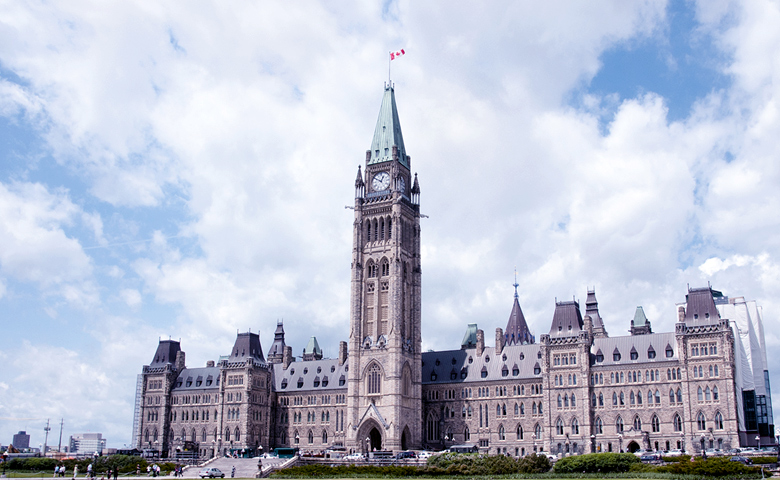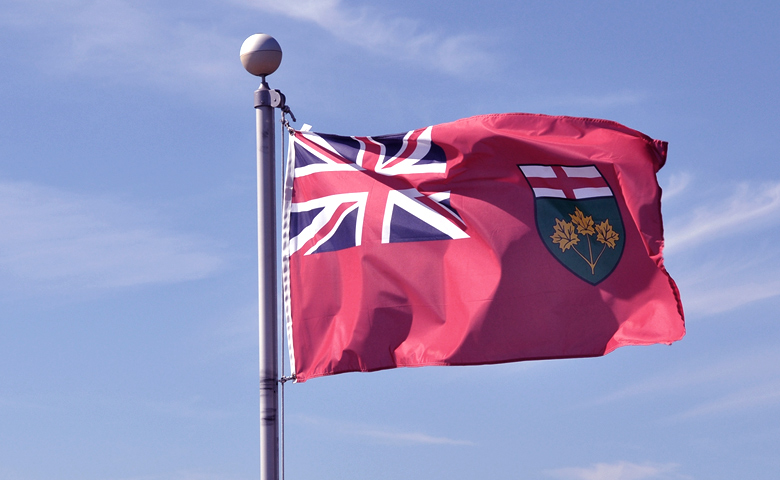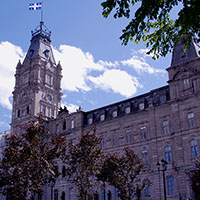Finance Minister Ernie Steeves tabled New Brunswick’s 2024-25 budget on March 19, 2024.
NB Budget 2024 introduces a new provincial vaping tax and increases support for low-income seniors; it makes no changes to corporate or personal tax rates.
NB Budget 2024 projects a surplus of $247 million for the 2023-2024 fiscal year, compared to a $40 million surplus projected in the previous budget, to reflect restated revenue and expense due to government reorganization.
Learn more about this budget on Grant Thornton Canada web site.
You could also like to read
Next article
Éric Girard, Québec’s Minister of Finance, just tabled a sixth budget aiming especially to meet the financial imperatives of the Budget’s two main priorities: health and education.
Written in thick red ink, this budget does not slash public services. On the contrary, far from being severe, it injects much more money into funding health and education while revising certain other tax assistance initiatives for businesses which will enable the government to save money.
This Budget therefore presents a significant deficit and results, according to the government, from factors such as “stagnant economic activity, low runoff in Hydro-Québec’s basins, massive government investment in public services—in particular to improve working conditions for public and parapublic sector employees—stronger-than-expected demographic growth and the pace of infrastructure investments […]”.
Furthermore, with growth now expected to hover around 0.6% for 2024, while forecast GDP growth was 1.4% in the last budget for that year, the Québec government will be in a deficit until 2029-2030.
Let’s keep in mind though that the Balanced Budget Act, updated in December 2023, gives the government greater flexibility in balancing its finances. This is why, for reasons including a significant deterioration in economic conditions, the government can henceforth postpone the return to a balanced budget.
However, it now intends to table its plan when the 2025-2026 budget is published, with the aim of achieving a zero deficit by 2029-2030, i.e., two years later than originally planned when this objective was announced in the 2023 Budget.
As a result, the deficit for 2024-2025 would not be $2.9 B as announced in November 2023 at the time of the government’s economic update, but closer to $11 B. So, instead of returning to a balanced budget in 2027-2028, public finances are expected to record a deficit of $3.9 B over the same period.
Health and education at the heart of the budget
It comes as no surprise that health and education are a priority in this budget. An amount of $5 B will be injected over five years in the State’s two main missions, including:
- $1.8 B for improving access to care and services and increasing hospital fluidity;
- $1.1 B for ensuring the continuity and quality of care and services for seniors;
- $819 M for fostering the educational success of young people;
- $421 M for promoting success in higher education.
A few measures for businesses and the economy
Despite the government’s extremely limited margin for financial manoeuvre and the significant support for the Budget’s two main priorities, we are bound to recognize that the Budget is providing close to $1.9 B over five years for economic priorities divided into four main areas.
These amounts comprise investments for supporting strategic sectors ($443 M) including measures such as:
- Setting up industrial laboratories in innovation zones ($125 M);
- Promoting the adoption of new technologies and research ($203.6 M);
- Growing Québec’s aerospace sector ($74.5 M).
In parallel, only $9 M will be injected over three years to support entrepreneurship and succession despite the fact that this is a very important issue.
Second, with regard to measures for growing the available labour pool and productivity in the construction industry, the Budget plans on investing $126 M.
Third, with a view to contributing to the prosperity of the regions ($888.5 M), the Budget provides investments for:
- Supporting Québec’s forestry sector ($347.5 M);
- Boosting mobility and vitality in the regions ($337.1 M), including only $27 M more for supporting regional air service;
- Supporting the development of the bio-food sector ($107.5 M).
Fourth, to facilitate immigrants’ economic and social integration ($400 M), an amount of $320 M will be injected to respond to the significant increase in the francization clientele and enhance the offer of services for certain clientele.
Adjusting certain tax assistance measures for businesses
Lastly, the Budget plans on generating savings of $874.5 M by 2028-2029 by amending the tax credits supporting jobs in the IT sector, that is, the tax credit for the development of e-business (TCEB) and the tax credit for the production of multimedia titles (TCMT). As such, “to improve fairness in the assistance offered and optimize the impact of tax credits targeting sectors that are labour intensive from an IT standpoint”, the Budget Plan intends to:
- Gradually harmonize the TCEB and TCMT base rates as of 2025;
- Refocus tax assistance to the IT sector on the highest value-added jobs as of 2025;
- Amend the tax credit for film production services as of 2024.
Furthermore, for tax purposes, the Budget plans on eliminating the tax credit to foster the retention of experienced workers, offered to employers, which will represent a financial gain of $251.9 M over five years.
For more information on the tax measures announced in this Budget, please download the Tax Bulletin.
Next article
You must spend fewer than 183 days in a calendar year in the U.S. to be considered a non-resident of the U.S. But what rules must be followed?
Quebecers who spend winter in the southern U.S. are aware of the criteria of the Substantial Presence Test (183-day presence over three years) and Form 8840, which allows them to be considered a non-resident of the U.S. In order to meet the criteria for this form, taxpayers must have spent fewer than 183 days in the U.S. during the year.
However, if you spend 183 days or more in the U.S. during a calendar year, you may be considered a U.S. resident for income tax purposes even if you don’t have legal residence status (green card) or American citizenship. This could create significant tax implications, which include the following.
Income tax
As a tax resident of the U.S., you will be required to report your world income to the U.S. tax authorities and pay taxes on this income whether you earned it within or outside the U.S.
Tax treaty
Canada and the U.S. signed a tax treaty that overrides this U.S. law. As a result, under Article IV of this treaty, you may be considered a Canadian resident rather than a U.S. resident for tax purposes if your primary or secondary ties are closer to Canada.
Income tax return
In such cases, you will be required to file a U.S. federal income tax return (Form 1040-NR) along with Form 8833, which allows you to avail of the provisions of this tax treaty. In addition to this declaration, you must also file several U.S. information forms (Forms FBAR, 5471 and 3520/3520-A, for example) for assets you hold outside the United States. If you fail to file these forms, you could be subject to penalties of $10,000 for each unfiled form.
Individual Taxpayer Identification Number (ITIN)
In addition to filing a U.S. tax return, taxpayers must also obtain an ITIN (Individual Taxpayer Identification Number). Your application for an ITIN must be submitted with a copy of your passport certified by Passport Canada or an acceptance agent.
Please note that Raymond Chabot Grant Thornton is accredited by the U.S. tax authorities to certify Canadian passports.
If you expect to spend more than 183 days of a calendar year in the U.S., you should plan your tax situation accordingly and consult an international tax expert to fully understand your tax obligations and explore strategies to reduce your tax burden.
04 Mar 2024 | Written by :
Mylène Tétreault is your expert in taxation for the Québec office. Contact her today!
See the profileNext article
There are several strategies and structures for property holdings in the United States, each with its own legal consequences.
Every year, as winter approaches, thousands of Quebeckers head south to Florida. Encouraged by the sun and high temperatures, many of them have purchased property there. However, before making this dream a reality, estate planning should be considered. Settling an estate following death or disability can be both costly and time-consuming.
In Québec, you can avoid court probate proceedings by preparing a notarized will. However, the reality in Florida is different and you may require a probated will from the US Court.
Avoid the probate process
These legal proceedings allow the US courts to validate and authorize the transfer of property to heirs as per the deceased person’s last wishes. In addition to generating fees as high as 3% of the estate’s belongings, selling the property to a third party or transferring it to heirs can take between 9 and 15 months.
The various ownership models
There are several possible ownership models that can help you to circumvent these costs and complications. Here are a few examples:
Revocable trust in Florida
This simple and flexible option facilitates the transfer of the property to heirs by avoiding the probate process. The trust can be modified at any time and adapted to family changes such as children reaching the age of majority or the creation of a blended family. It gives the owner total control, which includes the ability to sell in the event of incapacity without involving the US Courts. The trust can hold several properties in Florida.
The fees payable for setting up a revocable trust are generally lower than those required for probate proceedings. Please note that a T3 Trust Income Tax and Information Return must now be filed with the Canada Revenue Agency.
Joint ownership with a right of survivorship or by married persons
This planning option allows for the automatic transfer of the property to the surviving spouse or co-owner without having to go through the probate process. However, probate cannot be avoided following the death of the spouse or co-owner. This must be explicitly provided for in the property title.
Lady Bird Deed (Enhanced Life Estate Deed)
This option simplifies the transfer of the property to heirs while maintaining the owner’s control by adding the potential beneficiaries to the property title. However, making changes over the years can be difficult. It is not recommended where there are minor beneficiaries or blended families.
Property held by a corporation
Property held by a corporation is rarely recommended where the owner has personal use of the property since there is a taxable benefit for the shareholder. However, this model could be useful where the property is leased.
Planning for profit
Effective planning following the purchase of a real estate property or other assets in the US is required in order to avoid extra costs and undue delays. If you’re an owner who hasn’t taken the necessary steps yet, it’s not too late to act wisely.
By calling on an expert in international taxation who specializes in cross-border estate planning, you can ensure your loved ones will be free of worries.
19 Feb 2024 | Written by :







